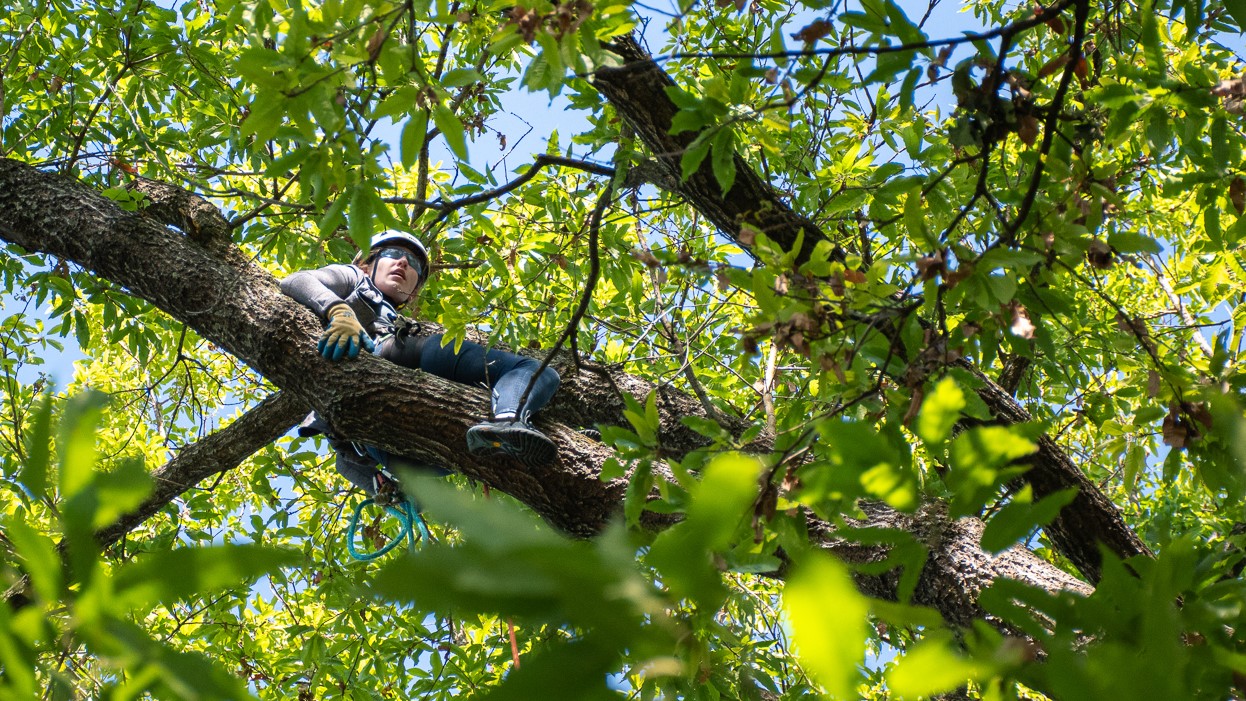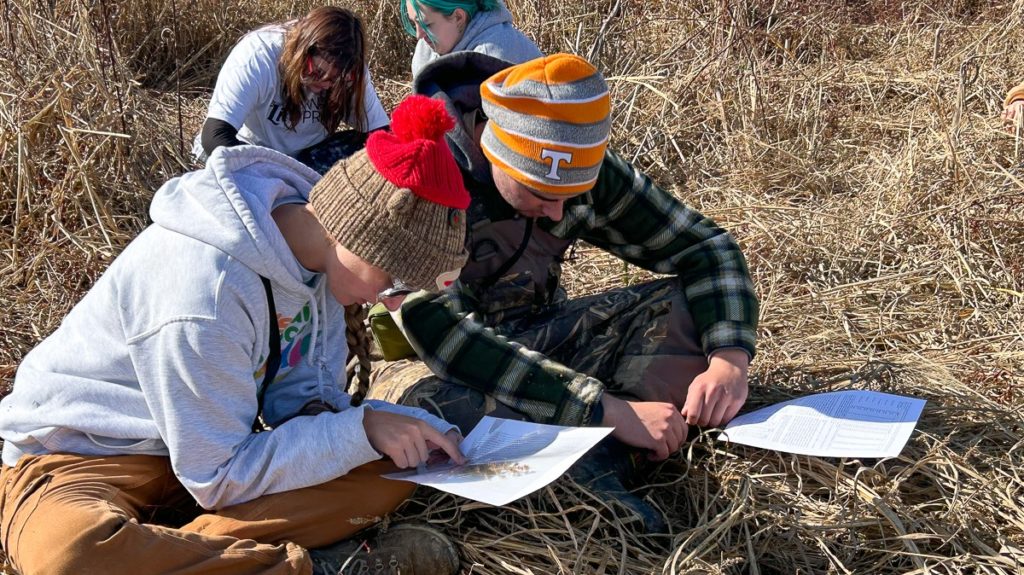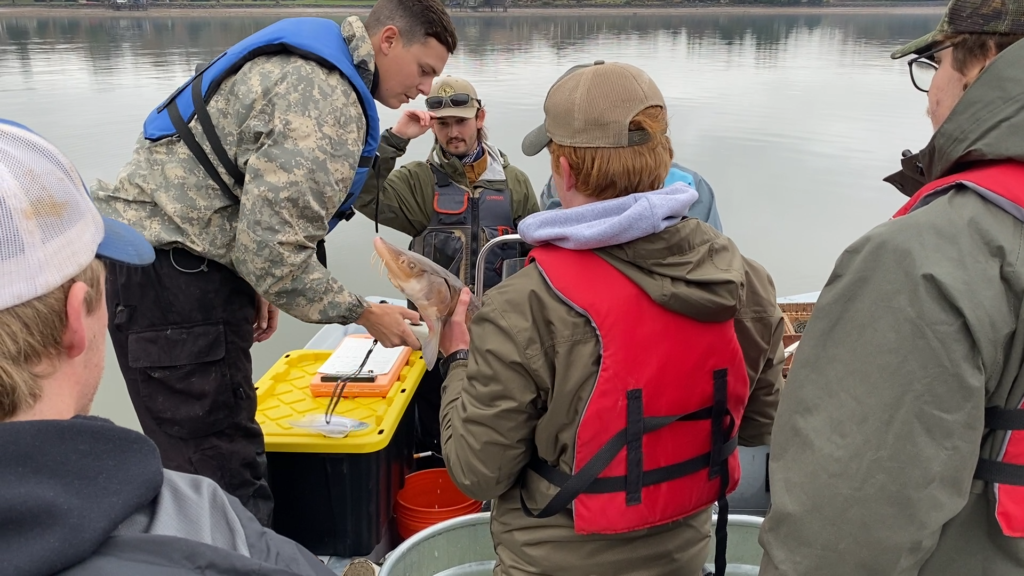
Former Department of Forestry, Wildlife and Fisheries Achieves New Designation
KNOXVILLE, Tenn. – Students, faculty and staff of the University of Tennessee’s School of Natural Resources celebrated the new designation on January 24. It officially became the University of Tennessee Institute of Agriculture’s first school on January 1. The Department of Forestry, Wildlife and Fisheries within the Herbert College of Agriculture changed to the new School of Natural Resources.
“The creation of the School of Natural Resources will provide new opportunities and increased visibility for the great work our students and faculty are doing,” UT Knoxville Chancellor Donde Plowman said. “The University of Tennessee is on the rise, and you see that across our entire campus, including the Herbert College of Agriculture.”
People gathered at the Plant Biotechnology Building on campus to commemorate the designation and recognize what it means for the future of the programs offered within the school.
About 363 students, including 316 undergraduates, are enrolled in the program. The field work and hands-on experiences offered by the school programs drew in many of its current students, and Carrie L. Castille, senior vice chancellor and senior vice president of UTIA, wants that trend to continue.
“We have Extension programs as well as research programs, to create that next generation or pipeline of natural resource conservationists,” Castille said. “I can see where this is going to put us in a competitive position with other schools of natural resources but also foster collaboration across the southeast and with other states.”

Currently, 11 other institutions in the southern region of the U.S. have either schools or colleges of natural resources or multiple academic departments focused on natural resource studies. Don Hodges, School of Natural Resources director, says the name change puts the university on equal footing with other institutions while also reflecting the breadth of programs under the school.
“It’s a better descriptor of what we have in the department,” Hodges said. “We are continuing to do forestry, wildlife and fisheries work, but we have a number of natural resource-related fields that the former name doesn’t necessarily describe as well.”
The school’s faculty includes 30 scientists, with five faculty and two Extension specialists expected to be added in the future. They specialize in several natural resource areas including wildlife health, native warm-season grasses, climate-smart forestry and bioenergy and bioproducts through the Center for Renewable Carbon.
“I see endless possibilities,” Sharon Jean-Philippe, Urban Forestry professor, said. “New name change means a new beginning, and getting us out there in a school setting means bringing a new focus and area where we can continue to grow.”
The new school will continue to offer Bachelor of Science degrees and Master of Science degrees in forestry or wildlife and fisheries and a doctoral degree in natural resources. It also offers a master’s program in forest business. Hodges adds that the school will assess the potential for adding an undergraduate program in outdoor recreation.
“We are not changing our current degree programs,” Hodges said. “We’re looking at our curricula not to make significant changes, but to make sure we’re producing graduates who have the knowledge they need to be successful in natural resources.”

The new school will remain competitive for extramural research and Extension funding to assist in managing and protecting natural resources. During the last two fiscal years, the former department gained more than $40 million in funding, including a $30-million grant from the USDA National Institute of Food and Agriculture (NIFA) to help farmers enter the emerging carbon economy.
“We’re seeing a lot of movement in the state, state government and elsewhere recognizing the importance of natural resources to our economy and our way of life in Tennessee,” Hodges said.
“We have a growing human population in the state of Tennessee,” Chris Graves, School of Natural Resources instructor and certified wildlife biologist said. “We have growing demands and stressors on our natural resources, so it should give us opportunities not just to do the research, but to answer important questions and help us maintain our healthy natural resources that we have in Tennessee.”
The designation comes after the Department of Forestry was established in 1964 and later renamed to the Department of Forestry, Wildlife and Fisheries in 1977. The school will be housed in the new Energy and Environmental Science Research Building, which is set to open in November 2023.
The School of Natural Resources is part of the Herbert College of Agriculture, UT AgResearch and UT Extension at the University of Tennessee Institute of Agriculture. The curricula focus on a mastery learning approach, emphasizing practical, hand-on experiences. The School of Natural Resources faculty, staff and students conduct research and Extension that advances the science and sustainable management of our natural resources. For more information, visit naturalresouces.tennessee.edu.
Through its land-grant mission of research, teaching and extension, the University of Tennessee Institute of Agriculture touches lives and provides Real. Life. Solutions. utia.tennessee.edu